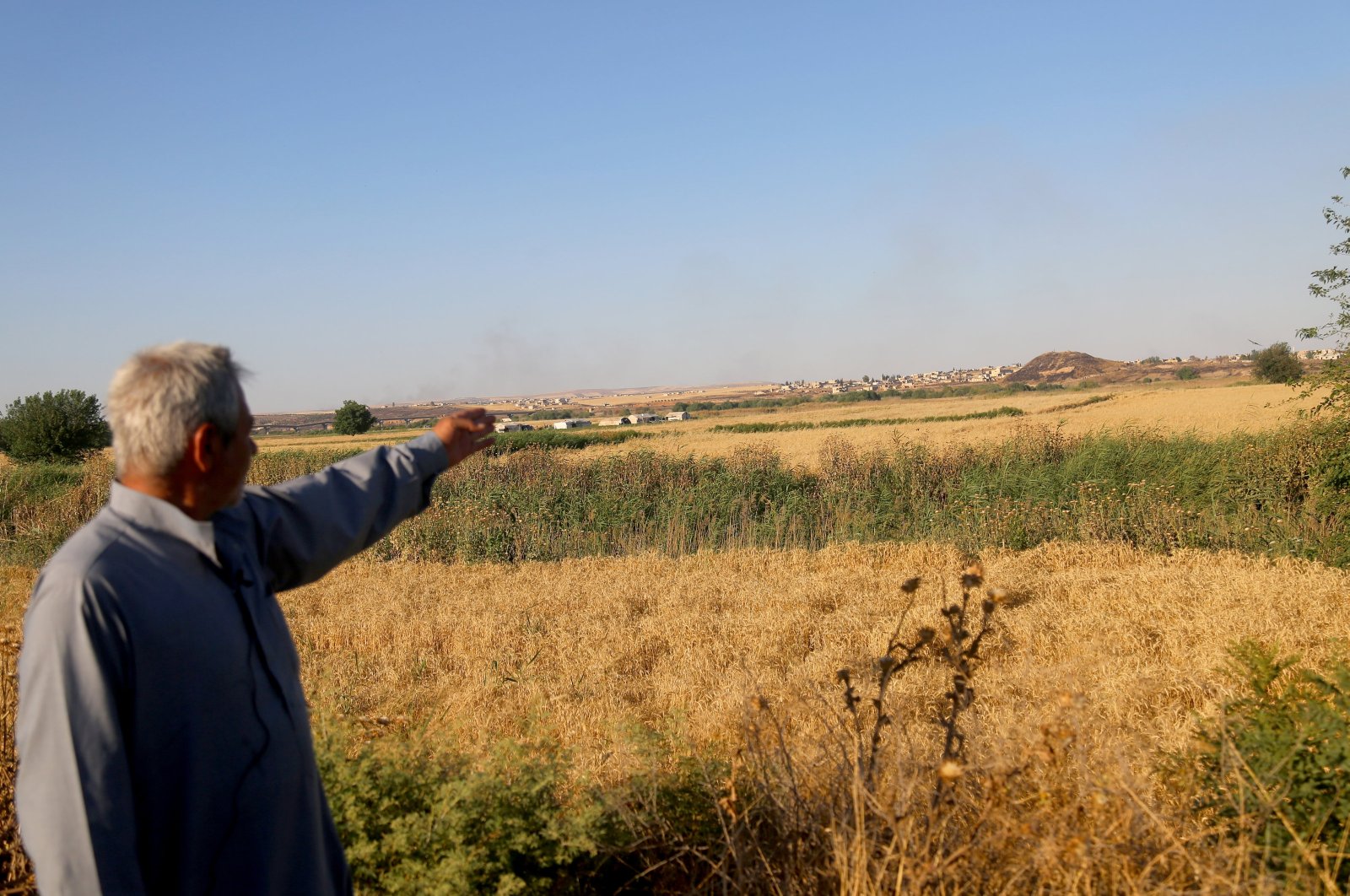
A Syrian Kurdish writer has described the PKK/YPG terrorist group as a "tool established by external forces to create division among components of Syrian society,” as backlash grows in northern Syria against the group’s decision to hold so-called local elections.
"External forces are specifically targeting Türkiye. With projects such as autonomous administration, 'social contracts' and local council 'elections,' they aim to create a de facto situation in the region and, in the long term, divide Syria," Ali Temmi told Anadolu Agency (AA).
Temmi, whose hometown is Ayn al-Arab in northern Syria, also known as Kobani, near the Turkish border, was kidnapped and held for three months by the PKK/YPG in 2017 for opposing the actions of the terror group. He said that he was released due to pressure from international organizations.
The writer said that he was forced to move to Türkiye due to threats posed by terrorists, adding that they would not allow him to live in Ayn al-Arab.
‘No real security’
Temmi said that after the Daesh terrorist group attacked Ayn al-Arab in 2014, about 250,000 people migrated to Türkiye, and very few have returned.
"Those living here (in Türkiye) are not returning because a real environment of security and safety has not been established in Kobani (Ayn al-Arab) under the occupation of the PKK/YPG,” he said.
Children are being kidnapped and forcibly recruited by PKK/YPG terrorists in the occupied district, he stressed.
"They burn homes and target activists. Therefore, there is no suitable environment for returning to the region.”
Kurdish parties reject YPG
Temmi continued by describing topics such as democratic society, confederation, environment, and women's and children's rights mentioned in the so-called "social contract" as "tools for marketing the organization's own project to the outside world."
"The PKK is exploiting the chaos in the country. However, this project will not succeed here. The reason is that this structure is on terror lists, commits violations against children, continues practices of forced conscription and civilian displacement," he explained.
He said that it is impossible to impose this project in Ayn al-Arab, Raqqa, Hassakeh, or Deir el-Zour because these communities have tribal structures.
He particularly highlighted how the PKK/YPG benefits from the prevalent chaos in Deir el-Zour and Raqqa in the presence of Americans. Washington has been a military and strategic backer of the YPG since 2015 under the pretext of driving out Daesh.
"Due to the detachment from reality, the so-called autonomous administration won't materialize. We Kurds do not recognize this autonomous administration. More than 50 Kurdish parties, including the Kurdish National Council (ENKS), refuse to recognize it and ENKS represents the largest Kurdish political forces," he said.
Temmi pointed out that the Bashar Assad regime uses the PKK to fight against Sunnis in the country and suppress the Syrian revolution.
"Some segments of Syrian society believe that Kurds are represented by the Syrian Democratic Forces (SDF) or PKK, but this notion is entirely incorrect. We do not accept this," he said, using the self-proclaimed title for the YPG.
Temmi stressed that just as Daesh cannot represent Sunni Arabs, PKK factions do not represent Kurds.
PKK/YPG has postponed its so-called municipal elections, planned in several regions and towns, from Deir el-Zour and Raqqa to Manbij and Afrin, from June 11 to August 2024. Turkish media said it was due to "intense external pressure." Locals of Manbij, whose lands were occupied by the YPG eight years ago, are among the opponents of the elections. They believe that the move aims to divide the country.
Temmi similarly pointed out that all Syrian components have coexisted for millennia and said: "These pro-regime groups aim to disrupt societal harmony or sow division among its segments.”
"As the Future Movement, we do not recognize this administration. These principles cannot be implemented east of the Euphrates because of the conservative society's tribal-based social structure. Therefore, this project will fail.”
Temmi emphasized the need for Syria to become a democratic, pluralistic state and called for the implementation of U.N. Security Council Resolution 2254, which is crucial for all parties involved.
